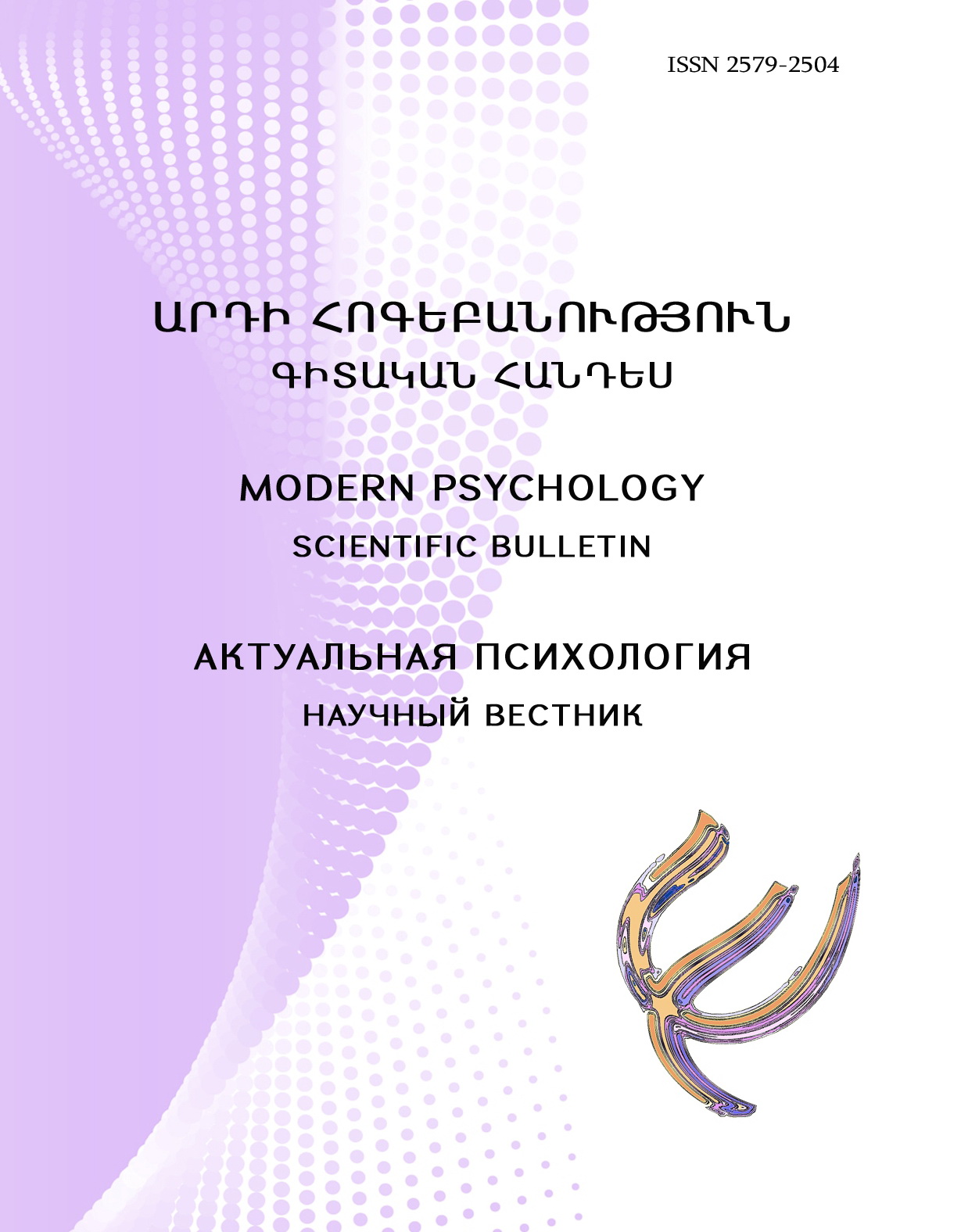FEATURES OF PSYCHOLOGICAL REHABILITATION OF WOUNDED SERVICEMEN IN THE POST-WAR PERIOD
DOI:
https://doi.org/10.46991/SBMP/2024.7.1.054Keywords:
post-war period, traumatic factors, PTSD, functional capabilities, general and mental health, psychorehabilitationAbstract
The article discusses the peculiarities of changes in the psychophysiological characteristics of the post-traumatic states of the servicemen wounded in the Artsakh War of 2020 in the post-war period. In the process of special accompanying and rehabilitation work, depending on the nature of physical and mental trauma, negative factors accumulated in the course of past military battles, characteristics of individual experiences and methods of individual control and assessment of general and mental health were identified. Depending on the nature of the injury (lower or upper extremities), their psychophysiological consequences, specific personal experiences, as well as socio-psychological features of interpersonal communication were differentiated. Thanks to the unique complex of psychorehabilitation, the functional capabilities of the body of servicemen were activated in special sessions, the process of self-regulation of subjective sensations and experiences was optimized. In parallel, special physiotherapy exercises were conducted, which contribute to self-organization, management and coordination of motor capabilities, as well as ensuring an optimal level of general and mental health of military personnel.
References
Voyennaya psikhologiya: metodologiya, teoriya, praktika. Uchebno-metodicheskoye posobiye. // koll. avtorov. Moskva, Voyennyy universitet, Kafedra psikhologii, 1996, 326 s..
Kadyrov R.V. Posttravmaticheskoye sessovoye rasstroystvo (PTSD). –SPb., 2012. P. 110-111.
Lazarus R. S., Teoriya stressa i psikhofiziologicheskiye issledovaniya. Emotsional'nyy stress (pod red. L. Levi), L., 1970, s. 253.
Magomed-Eminov M.SH. – Predistoriya kontseptualizatsii fenomena PTSR (posttravmaticheskogo stressovogo rasstroystva) / v knige Psikhologiya sostoyaniy. Khrestomatiya. / sost. T.N.Vasil'yeva, G. SH. Gabdreyeva, A.O.Prokhorov / pod red. prof. A.O.Prokhorova. – M.: PERSE. SPb.: Rech', 2004, - 608s. (p. 347-354)
Maklakov A.G. Problemy prognozirovaniya psikhologicheskikh posledstviy lokal'nykh voyennykh konfliktov. V knige Psikhologiya ekstremal'nykh situatsiy: Khrestomatiya // sost. A.Ye.Taras, K.V.Sel'chenok. -Mn., 1999, 466s..
Malkina–Pykh I. G. – Ekstremal'nyye situatsii. –M., 2006. p. 409-412.
Mkrtumyan M.P. Sistema psikhologicheskoy zashchity zhiznedeyatel'nosti lyudey v ekstremal'nykh uslmoviyakh/dis.na soisk. Dok.psikhol.nauk/Tbilisi 2002,285s.
Mkrtumyan M.P., Avanesyan G.M. Razrabotka ozdorovitel'nykh meropriyatiy dlya naseleniya postradavshego ot zemletryaseniya /V sb. Fizicheskaya podgotovlennost'/ M.1990, s.68-79.
Prakticheskaya psikhodiagnostika. Metodiki i testy. Uchebnoye posobiye. / red. sost. D.YA.Raygorodskiy. – Samara: Izd. Dom «BAKHRAKH», 1998. -672s.
Stress, vygoraniye, sovladaniye v sovremennom kontekste // pod red. A.L.Zhuravleva, Ye.A. Sergiyenko. -M., 2011, s. 156.
Downloads
Published
Issue
Section
License
Copyright (c) 2024 Մելս Մկրտումյան, Lilit

This work is licensed under a Creative Commons Attribution-NonCommercial 4.0 International License.



